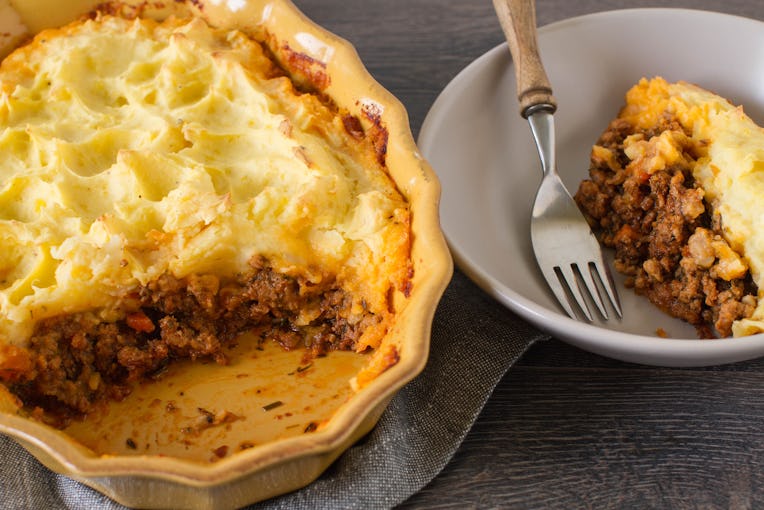Chef Sentenced for Lethal Shepherd’s Pie
The undercooked meal killed one and sickened 31 others

A British chef was convicted this week after accidentally killing one person and sickening 31 others through food poisoning. His crime? Making a shepherd’s pie with minced meat that was improperly cooked, resulting in the illnesses of dozens at the local pub he worked for.
The incident took place in October 2018, per the Guardian. Thirty-five people reportedly went to dine at the Crewe Arms in Hinton-in-the-Hedges, a village in West Northamptonshire, England. Thirty-two ate the shepherd’s pie (the other three were apparently vegetarians) and became “unpleasantly ill.” The villager who died was an otherwise healthy 92-year-old who suffered a gastrointestinal hemorrhage from vomiting.
The head chef, John Croucher, admitted to violating food safety regulations. “I hate to say it, I really hate to say it, but I think I was rushed. I was rushing,” he said in court.
The judge, recounting what happened that night, said that Croucher, who had 20 years of experience in kitchens, hadn’t cooked the mince properly before placing it in a pan with ice water. “Croucher needed to leave, so put the mince in cling film and put it in the fridge overnight. Having left it, he cooked it again and added warm mashed potato. He did not take the temperature when it was served,” said judge Sarah Campbell.
This tragedy, which is not a Sweeney Todd situation, is scary in part because this seems like the kind of mistake that is very easy for home cooks who are not trained in food safety to replicate. (For example: most of my family members, who take a somewhat lax approach to leaving cooked food out at room temperature for long periods of time.) Where Croucher went wrong is probably — and this is just me conjecturing as a non-expert — multifold: not cooking the meat properly to begin with; maybe not cooling it correctly if he was in a rush, thus possibly allowing bacteria to flourish; and reheating the meat without checking whether it had reached an internal temperature of 160 °F, although even that might not have saved it, since bacteria could have produced heat-resistant toxins from improper handling the night before.
The pub’s landlord was ordered to pay thousands of pounds in fines. Croucher, who no longer works at the pub, was sentenced to four months in jail. His sentence was suspended for 12 months (meaning the jail time is delayed for a year, providing the opportunity for probation and rehabilitation first).
“Remorse is an understatement. This is something I will never forget,” said the chef. “Because of it, I am a better chef and it is just a shame the cost of it had to be what it was.”